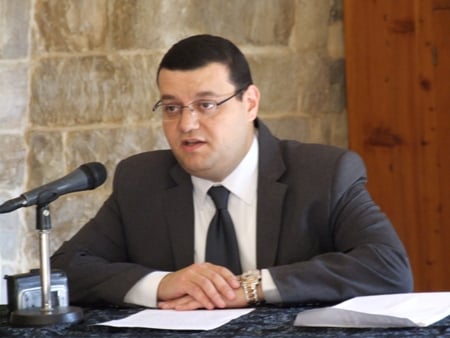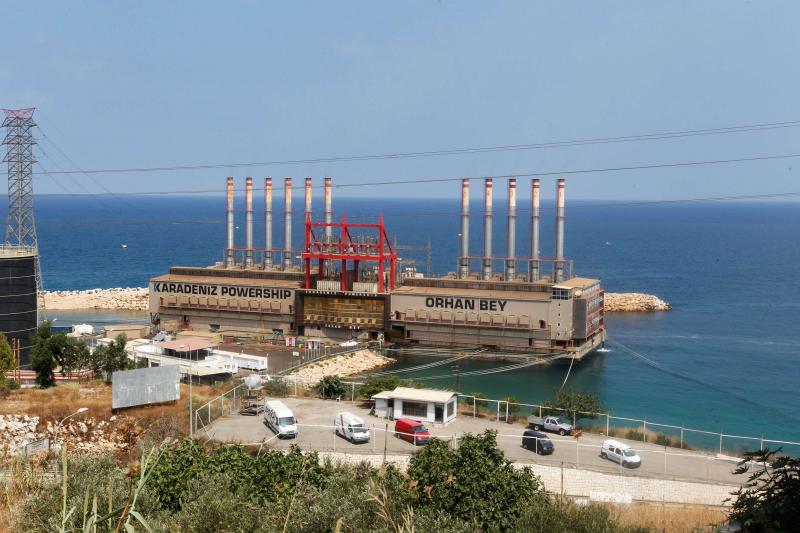After Paris donor conference, let the show begin
Rami Rayess / The Arab Weekly
17 أبريل 2018

The conference yielded some $11.5 billion of pledges, $860 million of which are grants, with the remainder made up of soft loans.
Lebanon’s experience with international support conferences is not new. The small country on several occasions gathered states from around the world and international monetary institutions to rally support for its ailing economy.
More than 22 countries and donors convened early in April in Paris under the patronage of French President Emmanuel Macron to extend aid to Lebanon. However, on this occasion, the aid came predominantly in the form of loans, with nearly all predicated upon significant internal reform.
The Cedre conference followed three previous conferences — Paris I, II and III. However, commitments made by Lebanon at those gatherings have long since lost much of their meaning, with all foundering on the rocks of local political differences. Most important, economic reforms promised by the Lebanese government never saw the light.
The timing of the latest conference, just weeks before Lebanon’s parliamentary elections, also raised questions. Some critics speculated whether the conference was for the good of Lebanon as much as it was a donor platform for the current government, most of whose members are up for re-election.
Throughout was the suspicion of mismanagement of public funds and the wide acceptance of the prevalence of corruption. “A strong commitment to reform — and a meaningful follow-up mechanism for tracking progress — would send a positive signal to the private sector and the international community that Lebanon is a good place to do business,” an unnamed Western diplomat told the Lebanese newspaper, the Daily Star.
However, for the Lebanese cabinet, the pitch was essentially straightforward. Its members were looking to the international community to help sustain the country’s ability to support the Syrian refugees, more than 1 million of whom had flocked to the country. Lebanon, its economy, infrastructure and education system — already ailing after years of neglect — had all but buckled under the unanticipated flow and the country looked to the world for help.
Sweetening the pot, three broad areas of reform were identified and put forward by the Lebanese cabinet:
Organisational reforms relating especially to the public budget and improving investment opportunities for the private sector.
Sector reforms, with particular reference to water and electricity, which cost the government $2 billion a year without providing 24-hour service throughout Lebanon.
Improving governance policies that would fight corruption, which has reached unprecedented levels in public administration.

The conference yielded some $11.5 billion of pledges, $860 million of which are grants, with the remainder made up of soft loans. This is in addition to the previously approved $3 billion that has not yet been released due to various local political and bureaucratic obstacles.
One issue that might inflame differences inside Lebanon relates to whether the parliament should approve the overall investment package or vote on the rollout of each and every loan, as mandated by the constitution.
Parliament Speaker Nabih Berri, along with the leader of the Progressive Socialist Party, Walid Jumblatt, were among the first to raise concerns over the former, suggesting that limiting parliament’s oversight of each aspect of the aid package might pave the way for under-the-table dealing, essentially replaying the dismal fates of Paris I, II and III.
Economic expert Ghazi Wazni told a Lebanese news agency: “Political forces fear that loans might be misused because they are huge figures that will lead to financial and economic consequences if misused such as accumulating the public debt in a manner that Lebanon will not be capable to deal with. According to the International Monetary Fund, Lebanon’s economy, with its institutional deficiencies, cannot employ more than $1.5 billion per year and must implement projects related to alleviating the social situation and not in favour of personal benefit for politicians.”
It is a new challenge Lebanon faces. As the country prepares for a fundamental parliamentary shift ahead of May’s elections, it remains to be seen how effectively a new parliament can manage and implement an aid package agreed by the former.
 عن أمل جنبلاط المتجدد: لبنان يستحق النضال
عن أمل جنبلاط المتجدد: لبنان يستحق النضال
 صحافيون أم عرّافون!
صحافيون أم عرّافون!
 ماذا يجري داخل أروقة بيت الكتائب المركزي؟
ماذا يجري داخل أروقة بيت الكتائب المركزي؟


 عن الخرائط التي تُرسم والإتفاقات التي تتساقط!
عن الخرائط التي تُرسم والإتفاقات التي تتساقط!
 “الإنحراف في الحياة”/ بقلم كمال جنبلاط
“الإنحراف في الحياة”/ بقلم كمال جنبلاط
 هاشتاغ #صار_الوقت يحل أولاً في حلقة جنبلاط
هاشتاغ #صار_الوقت يحل أولاً في حلقة جنبلاط
 طاولة نقاش عن أزمة الصحافة في جامعة AUST
طاولة نقاش عن أزمة الصحافة في جامعة AUST
 عبدالله: ليظهر لنا وزير مكافحة الفساد حرصه في صفقات البواخر والفيول
عبدالله: ليظهر لنا وزير مكافحة الفساد حرصه في صفقات البواخر والفيول
 عبدالله: غريب أمر وزارة مكافحة الفساد!
عبدالله: غريب أمر وزارة مكافحة الفساد!

 Comment to Uri Avnery: How Sad What Is Looming Ahead
Comment to Uri Avnery: How Sad What Is Looming Ahead
 “Not Enough!”
“Not Enough!”
 … لمن لم يقرأ يوسف البعيني/ بقلم وسام شيّا
… لمن لم يقرأ يوسف البعيني/ بقلم وسام شيّا
 كمال جنبلاط في مولده الأول بعد المائة: تعاليمه وأفكاره ما زالت الحلّ/بقلم عزيز المتني
كمال جنبلاط في مولده الأول بعد المائة: تعاليمه وأفكاره ما زالت الحلّ/بقلم عزيز المتني
 رئيس حزب/ وليس (… سابقاً)/ بقلم د. خليل احمد خليل
رئيس حزب/ وليس (… سابقاً)/ بقلم د. خليل احمد خليل
 التوازن السياسي في لبنان
التوازن السياسي في لبنان
 لبنان… مشاريع انقلابية مؤجلة
لبنان… مشاريع انقلابية مؤجلة
 جنبلاط وحَمَلة أختام الكاوتشوك
جنبلاط وحَمَلة أختام الكاوتشوك
 Le Liban est un symbole de tolérance
Le Liban est un symbole de tolérance
 Our Automated Future
Our Automated Future
 The True Origins of ISIS
The True Origins of ISIS
 Les Misérables vs. Macron
Les Misérables vs. Macron
 عذراً أيها المعلم/ بقلم مهج شعبان
عذراً أيها المعلم/ بقلم مهج شعبان
 رساله الى المعلم / بقلم ابو عاصم
رساله الى المعلم / بقلم ابو عاصم
 إلى روح القائد والمعلم كمال جنبلاط/ بقلم أنور الدبيسي
إلى روح القائد والمعلم كمال جنبلاط/ بقلم أنور الدبيسي
 أسرار وعناوين الصحف ليوم الجمعة 14 كانون الاول 2018
أسرار وعناوين الصحف ليوم الجمعة 14 كانون الاول 2018














